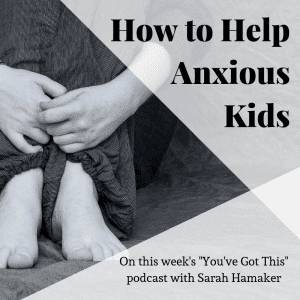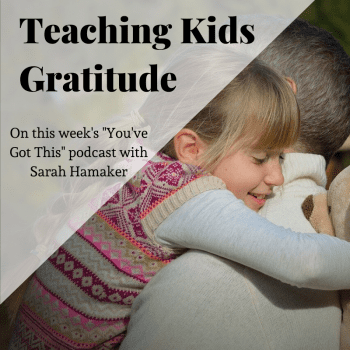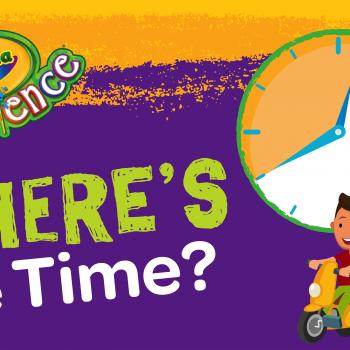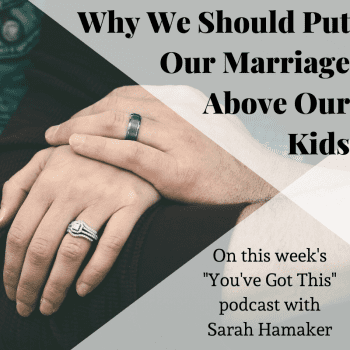
The following is an excerpt from my interview with Dr. Sherrie Campbell on my podcast, You’ve Got This.
Dr. Sherrie is a nationally recognized expert in clinical psychology, an inspirational speaker, former radio host of the “Dr. Sherrie Show” for the BBM Global Network and TuneIn Radio, a former contributor for HuffPost, and the author of several books, including But It’s Your Family : Cutting Ties with Toxic Family Members and Success Equations: A Path to Living an Emotionally Wealthy Life. She’s one of the top read contributors for Entrepreneur.com, a regularly featured expert on radio and television, and in Time.com, Self.com, USA Today, Glamour, Cosmopolitan, and numerous other media outlets. Dr. Sherrie is a licensed psychologist with almost three decades of clinical training and experience, providing counseling and psychotherapy services to residents of Orange County, California. In her private practice, she specializes in psychotherapy with children, adults and teenagers, providing marriage and family therapy, counseling for grief, and offering advice on childhood trauma, sexual issues, personality disorders, illness, and more. She is the mother of a daughter who inspires her every move in life. She resides in Los Angeles.
Whether our kids have a specific anxiety diagnosis or weather, they have trouble with school or social situations, all of our kids experience anxiety at some point. Do you have any pointers or any things that we can maybe do as parents to kind of help our kids when they get that kind of may be normal test anxiety for school?
Sherri: What I do with all kids is I think it’s important just to encourage them. If you believe in them, they are much more likely to believe in themselves. Optimal levels of frustration are 100% necessary for their growth. As parents, we certainly want to protect them from massive frustrations, but we also have to trust that their resiliency is going to grow if they have optimal levels of frustration.
Are there any signs that our kids are maybe not able to handle the anxiety with normal encouragement?
Sherri: The great thing about anxiety is it’s usually pretty obvious. Depression is a little sneakier. Anxiety creates movement in the body. The speeches faster or they are totally shut down. They can avoiding things or are crying a lot. When anxiety is there, that means fear is there, and the way that I define anxiety is that it is fear projected forward.
When we are anxious, we’re actually anxious about things that are not currently happening, and so we are foreshadowing that something horrible is going to happen. It’s important to teach our kids to slow down, and we can help them to do that. The best way to do that is to look at those signs, then approach our kids and try to change their physiology, like suggesting a bath or walk. That little break pulls them away from the thought that they are projecting forward into a doomsday situation, and it kind of spot-checks them.
That is so simple and yet when I think that how I’ve kind of handled it with my daughters and my sons, I often will say, “Why don’t you take a break? Why don’t you step away?” and I guess I was doing it without even knowing if I was doing the right thing – yay!
Sherri: We can also make our kids more anxious if we drill our kid with a ton of questions: What is your test on? When is it going to be? Do you need to study? How much are you going to study? Can I help you study?
When your kids feel like you’re their ally, you create a situation where they know you’ll help. You don’t punish a person who’s anxious. What you want to do is to bring value: How can I support you? For example, let’s say that your kid is missing an assignment and they are crying. They are already punishing themselves. You don’t need to go in there and punish that and make that anxiety worse. You ask them, “How can I help you and what can we do to bring value to the situation?” It slows them down, they began to think about things, and they problem-solve with you knowing they are not going to get in trouble. Then once the anxiety situation is over, you can say, “How did we get those assignments missed? What happened there?” The child will explain but it is a nonpunitive. You don’t want to punish your children—you want to lead them.
When you can tell your child is already upset and already anxious about the missing assignments or that they forgot to study for a test, it doesn’t help us when we talk about it too much. Plus, in today’s environment, it’s easy to have nearly instant knowledge about how they did on the test. Sherri: The ability parents have to go in and check their children’s grades on a daily basis isn’t good either. But what’s happening is the teachers are behind on putting stuff in, so the grade is not reflecting all their work. That can create anxiety in both the parents and the kids.
Meanwhile, the bottom line is that as parents, we forget how many mistakes that we made as kids. It is like we want our kids to be these perfect kids for whatever reason. That is actually not healthy. The more perfect we want our kids to be, the more anxiety we are going to cause.
Our kids are getting pressure from everywhere, but we parents don’t need to do it for them. As parents, we have full-time careers. We don’t need to be doing our kid’s career. Thus giving them responsibility for their own school work, etc., is something that helps both parents and kids.
And teachers feel pressure to inform parents of what their child needs to do or not do in relation to schoolwork. I’ve received emails from teachers asking me to make sure my student studies for X test, etc.
Sherri: That creates a dependency on you because your kids will go, “Well, shoot, my teacher is going to tell my parents, so I don’t need to pay as much attention.” Part of learning to handle life is that anxiety is just 100% a part of it. We don’t have full control of our lives. Anxiety is felt by every single human every single day because we are not in control.
The more that our kids are given an opportunity to learn to lead their own life with our support, with our guidance, with our protection, and with our leadership, the more resilient they will become. We don’t want to raise a child who is not resilient but dependent upon their teachers, dependent upon their parents to inform them on how to take every turn in life.
Optimal levels of frustration are healthy. We learn the most when we are in pain because we don’t like the way that feels, so we start moving, we start changing, we start thinking differently. Our kids need not be perfect. They need to be able to be human and make mistakes, and have learning experiences.
To hear more great advice and stories from Dr. Sherrie, listen to “How to Help Anxious Kids” on the “You’ve Got This” podcast.












